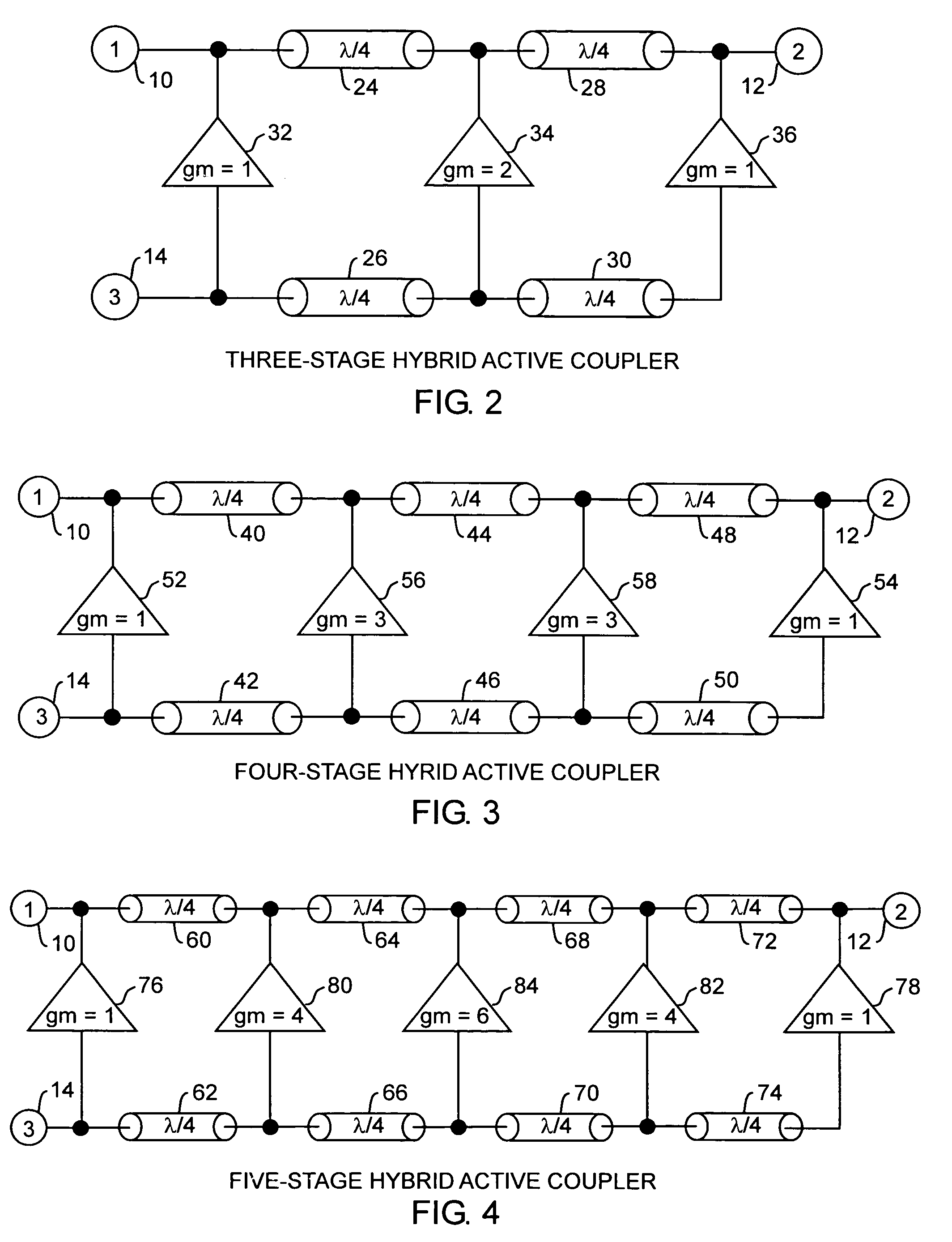Hybrid active combiner and circulator
a technology of active combiner and circulator, which is applied in the direction of amplifiers with semiconductor devices/discharge tubes, amplifiers with coupling networks, and low noise amplifiers. it can solve the problems of reducing the range of reflection coefficient that can be applied to the source port of the dut, and the active combiner of fet cannot meet the requirements of some applications
- Summary
- Abstract
- Description
- Claims
- Application Information
AI Technical Summary
Benefits of technology
Problems solved by technology
Method used
Image
Examples
Embodiment Construction
[0023]An embodiment of the invention is described with reference to the figures using reference designations as shown in the figures.
[0024]Referring to FIG. 1, a hybrid active coupler that functions as a combiner and a circulator, is a three-port network, having a first port 10, a second port 12 and a third port 14. This configuration is a the simplest form of the coupler as a two-stage network having two passive delays 16 and 18 and two transconductance amplifiers 20 and 22 each having a normalized transconductance of unity. Each stage is characterized by an amplifier. The amplifiers 20 and 22 are aligned in parallel, with the delay 16 connected across the outputs and delay 18 connected across the inputs of the amplifiers 20 and 22. An input signal into the third port 14 is connected to first and second ports 10, and 12, respectively, between which is disposed the delay 16. A passive signal path between ports 10 and 12 is designed to have minimal insertion loss. The port 14 is the ...
PUM
 Login to View More
Login to View More Abstract
Description
Claims
Application Information
 Login to View More
Login to View More - R&D
- Intellectual Property
- Life Sciences
- Materials
- Tech Scout
- Unparalleled Data Quality
- Higher Quality Content
- 60% Fewer Hallucinations
Browse by: Latest US Patents, China's latest patents, Technical Efficacy Thesaurus, Application Domain, Technology Topic, Popular Technical Reports.
© 2025 PatSnap. All rights reserved.Legal|Privacy policy|Modern Slavery Act Transparency Statement|Sitemap|About US| Contact US: help@patsnap.com



